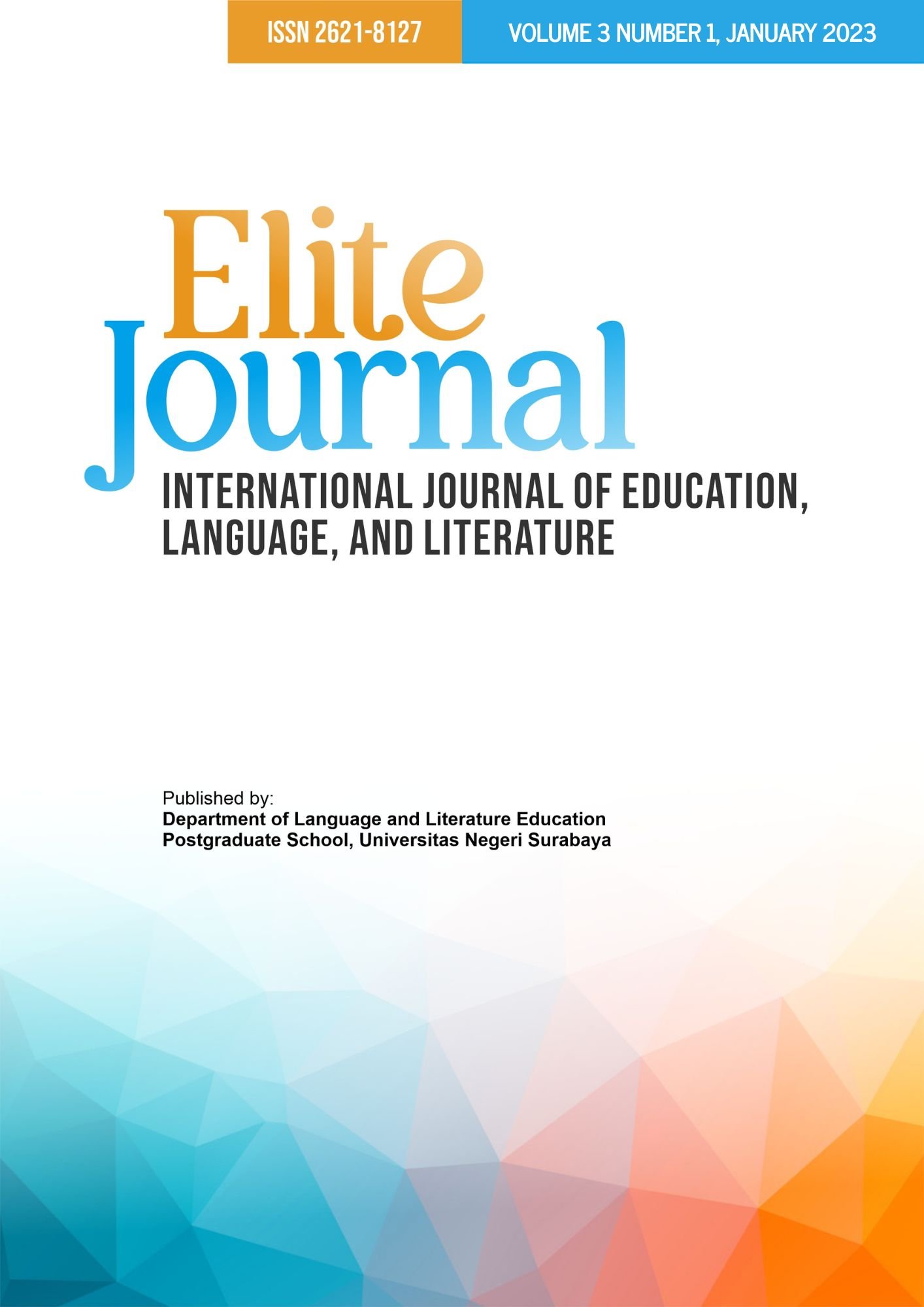GENERATION Z: IMPLICATIONS FOR UNIVERSITIES
DOI:
https://doi.org/10.26740/elitejournal.v3n1.p35-45Keywords:
Generation Z, University education, literature reviewAbstract
Providing proper educational services to Gen Z students poses a serious challenge to educators worldwide. This article attempts to make sense of the literature surrounding it. Using a literature review and reflections, this paper explores the implications of Generation Z on the University. It aims to see how universities can serve this current generation of students, especially those in the Global South. The literature review covers the period ending in 2020. The paper analyzes patterns in the literature and notes differences between various countries and disciplines in their approach to the challenges posed by integrating Generation Z into universities. Using a combination of literature and reflections on the practice of education, the paper argues that Generation Z can be served in tertiary education. The literature is classified using a typology reflecting the orientations of service, pathology, disciplines, and the philosophy of education. The paper is global in reach, covering articles concerning countries in Europe, Asia Pacific, Latin America, and the Middle East. It offers recommendations to universities from the authors' home university perspective. The paper concludes with a discussion and reflections concerning what the literature and experiences suggest and ends with a brief research agenda.
References
Aryani, F., & Umar, N. (2020). Factors affecting z generation on selecting majors in the University: An Indonesian case. Journal of Social Studies Education Research, 11(3), 109-133.
Bana, A. (2020). Students' perception of using the Internet to develop reading habits. Journal of English Teaching, 6(1), 60-70.
Boholano, H. (2017). Smart social networking: 21st century teaching and learning skills. Research in Pedagogy, 7(1), 21-29.
Carter, T. (2018). Preparing Generation Z for the teaching profession. Srate Journal, 27(1), 1-8.
Conefrey, T. (2016). Technology in the college classroom: Crisis and opportunity. Educational Technology, 37-40.
Foos, A. E. (2020). Teaching Generation Z social media marketing: A Micro-influencer project. Journal of Instructional Pedagogies, 24.
Hariadi, B., Sunarto, M. J., & Sudarmaningtyas, P. (2016). Development of web-based learning application for generation Z. International Journal of Evaluation and Research in Education (IJERE), 5(1), 60-68.
Hatane, S. E., Willianto, K. A., Junaidi, C. P., & Jessica, C. (2019). The Dimensions of Accounting Profession in the View of High School Students as the Generation Z. Journal of Education and Learning (EduLearn), 13(4), 550-558.
Igel, C., & Urquhart, V. (2012). Generation Z, meet cooperative learning: Properly implemented cooperative learning strategies can increase student engagement and achievement. Middle school journal, 43(4), 16-21.
Kardaras, N. (2016). GENERATION Z. Scientific American Mind, 27(5), 64-69.
Loveland, E. (2017). Instant generation. Journal of college admission, 235, 34-38.
McMahon, C. J., & Bernard, C. J. (2019). Storm clouds on the horizon. Naval War College Review, 72(3), 84-100.
Miller, A. C., & Mills, B. (2019). 'If they don't care, I don't care': Millennial and Generation Z students and the impact of faculty caring. Journal of the Scholarship of Teaching and Learning, 19(4), 78-89.
Moore, K., & Frazier, R. S. (2017). Engineering education for generation Z. American Journal of Engineering Education (AJEE), 8(2), 111-126.
Ortiz, S., & Green, M. (2019). Trends and patterns of mobile learning: A study of mobile learning management system access. Turkish online journal of distance education, 20(1), 161-176.
Parente Jr, J. M., & Haile, Y. (2020). Student-prepared videos in undergraduate instruction. Journal of Instructional Pedagogies, 24.
Poll, H. (2018). Beyond millennials: The next generation of learners.
Pousson, J. M., & Myers, K. A. (2018). Ignatian Pedagogy as a frame for universal design in college: Meeting learning needs of Generation Z. Education sciences, 8(4), 193.
Rosa, D., & Obillos, J. P. (2017). From coercion to autonomy: Designing a literature program for 'Generation Z' learners. Journal on English Language Teaching, 7(3), 7-21.
Sanalan, V. E. H. B. ?., & Ta?l?beyaz, E. (2020). Discovering Turkish Generation-Z in the context of educational technology. Journal of Educational Issues, 6(2).
Schwieger, D., & Ladwig, C. (2018). Reaching and retaining the next generation: Adapting to the expectations of Gen Z in the classroom. Information Systems Education Journal, 16(3), 45.
Seemiller, C., Grace, M., Dal Bo Campagnolo, P., Mara Da Rosa Alves, I., & Severo De Borba, G. (2019). How generation Z college students prefer to learn: a comparison of U.S. and Brazil students. Journal of educational research and practice, 9(1), 25.
Siahaan, E. B. (2020). Students' perception of Edmodo use as a learning tool. Journal of English Teaching, 6(1), 12-23.
Silverstone, S., & Teatum, J. (2011). Technology: The problem or the solution to childhood obesity. American Journal of Business Education, 4(1), 37-60.
Spears, J., Zobac, S. R., Spillane, A., & Thomas, S. (2015). Marketing learning communities to Generation Z: The importance of face-to-face interaction in a digitally driven world. Learning Communities: Research & Practice, 3(1), 7.
Sriprom, C., Rungswang, A., Sukwitthayakul, C., & Chansri, N. (2019). Personality traits of Thai Gen Z undergraduates: Challenges in the EFL classroom?. PASAA: Journal of Language Teaching and Learning in Thailand, 57, 165-190.
Wasilczuk, J. E., & Richert-Ka?mierska, A. (2020). What potential entrepreneurs from generation Y and Z lack-IEO and the role of E.E. Education Sciences, 10(11), 331.
Zaitchik, A. (2019). R.I.P., Kill Your T.V. The Baffler, (48), 80-94.
Downloads
Published
How to Cite
Issue
Section
License
Copyright (c) 2023 Jacl Kalpakian, Abdelkarim Marzouk

This work is licensed under a Creative Commons Attribution 4.0 International License.
 Abstract views: 711
,
Abstract views: 711
, PDF Downloads: 807
PDF Downloads: 807





